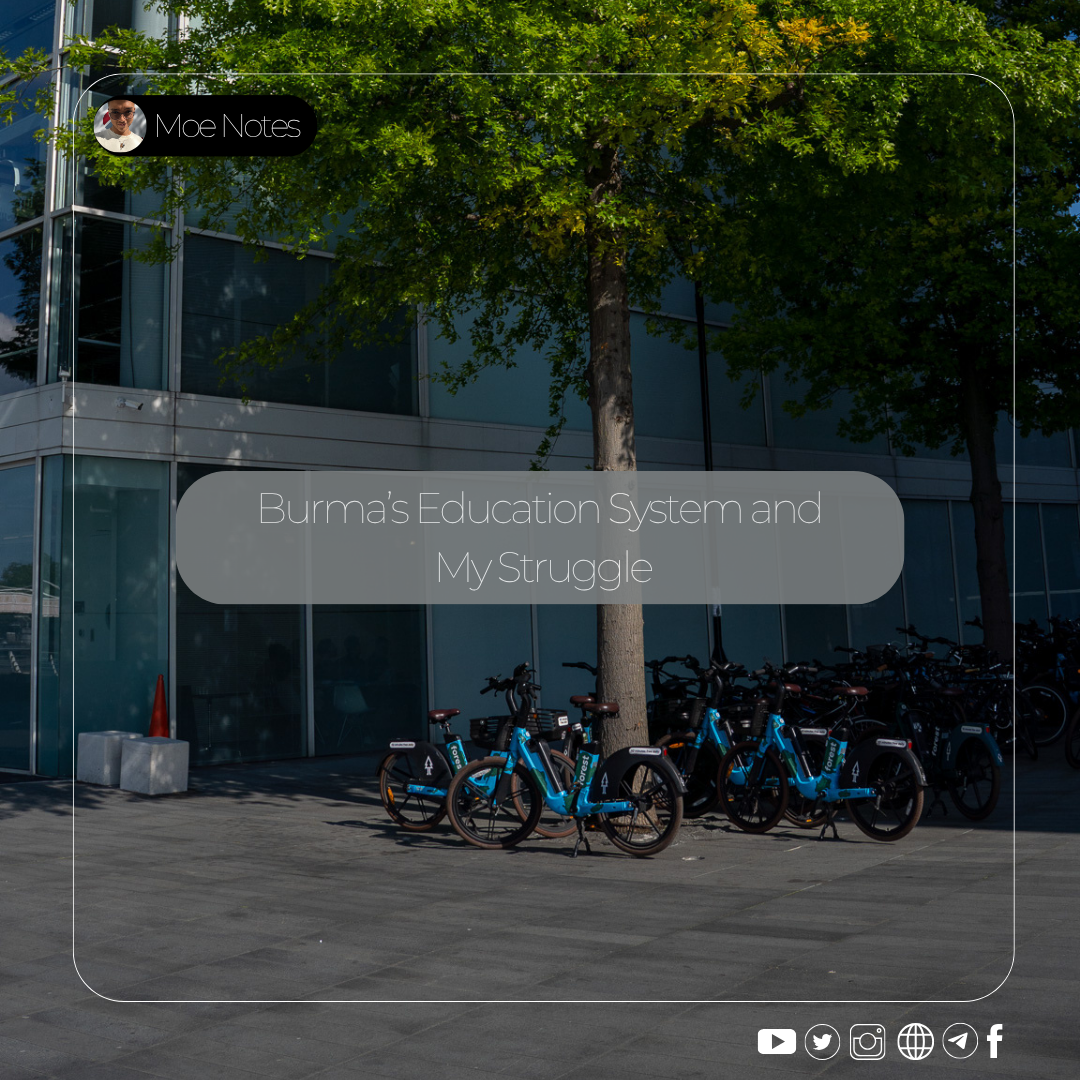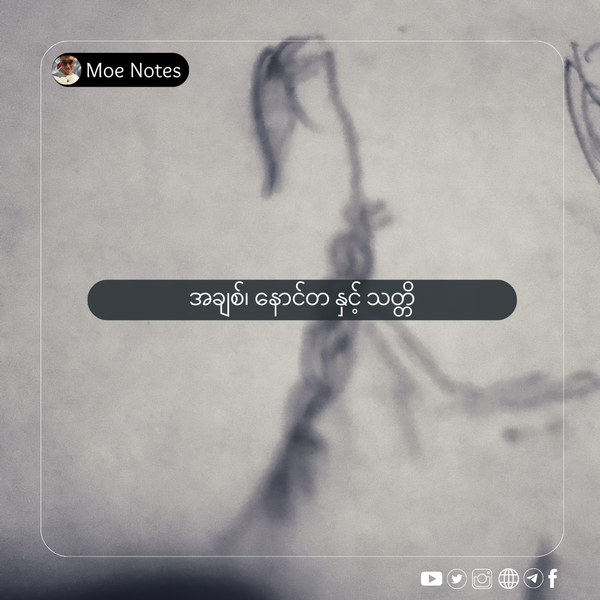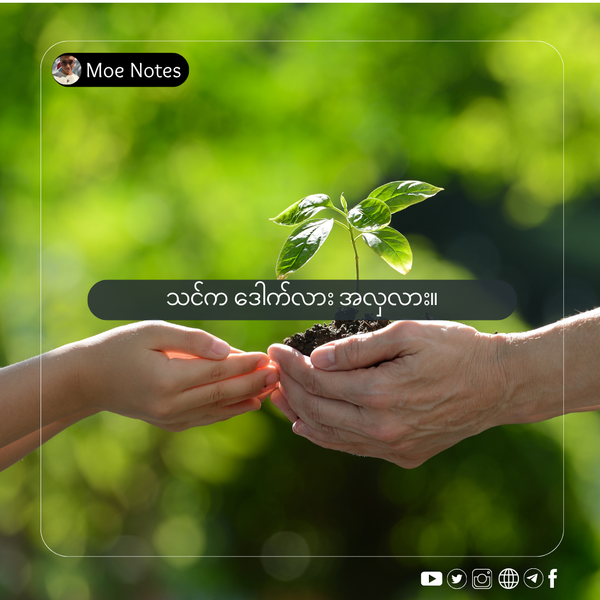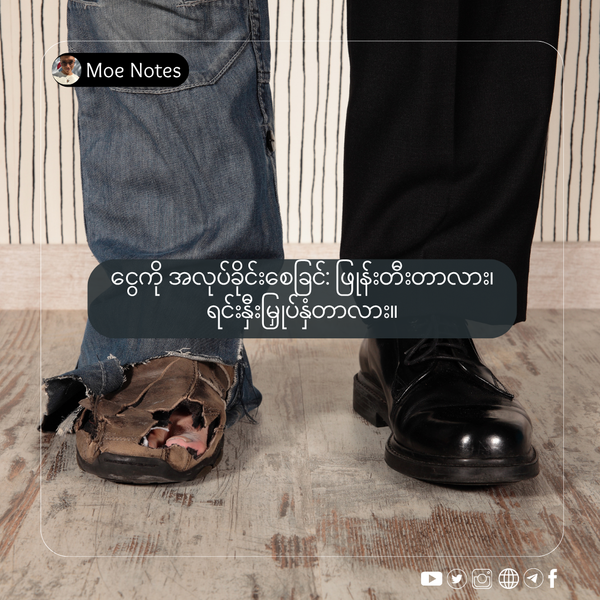Burma’s Education System and My Struggle

"A school is a place that teaches you how to face the real world. It's not just an arena for competing with books and pencils."
This article is also available in [Burmese]
Today’s post is a story about me. It’s a necessary chapter to share, especially when I talk about the process of applying to universities. This is the story of my childhood, my struggles within the education system of Myanmar, and how I ultimately found my path.
Part 1: Childhood and the Beginning of My Education
I come from a family that values education deeply. They valued it so much that it became overwhelming. Their values slowly began to dominate my life. From preschool, I attended an English-curriculum school, following the IGCSE system. I used to get all A’s when I was young. It wasn’t that my family was incredibly wealthy.
Events from Primary School
For many years, my life was a cycle of school and home, home and school. When I was young, I wasn’t allowed to spend much time with friends; my time was meant to be spent with books. My parents had their dreams for what they wanted me to become. I accepted it, whether I liked it or not. At that age, I couldn’t make my own decisions.
As I got older, I started to stray from that path. In 4th Grade, I completely stopped doing my schoolwork, which led to various problems. Report cards were sent home, and I forged the signatures. In 7th Grade, I became passionate about sports, and my academics suffered. The teachers themselves couldn’t do more than teach the subject matter; they couldn’t teach us how to learn. I received detentions and suspensions. It got to the point where a teacher asked me, “Are you going to drop out, or are you going to change?”
I never saw myself as a “bad” kid. I was just lazy when it came to studying. I never got into drinking, drugs, or gaming addictions. I still haven’t. But these things—being lazy with schoolwork—weren’t exactly praiseworthy. There was very little support or belief from anyone. The teachers were as oppressive as they could be, and I didn’t have many classmates I could rely on.
On top of that, there was bullying. I had my Facebook account taken, and messages were sent to female classmates. My childhood was not free. My friends weren’t good influences. Most of them were “rich kids,” and I grew up in a circle where money was spent like water.
Part 2: From an International Curriculum to a Burmese School
I had some friends I was close to, and some I admired. And so, to escape the life of getting “3 A’s,” my family started to plan. The new goal was for me to pass the Burmese matriculation exam (the 10th-grade national exam). The school I was at offered the full IGCSE path up to A-Levels, but that would take too long. And even after finishing A-Levels, we didn’t have the financial means for me to study for an extended period in countries like the US, UK, or Australia.
The cost of the English school and the private Burmese school were about the same. In fact, with all the extra tuition required, the Burmese school was probably more expensive. And so, I switched to a Burmese school. For a 13 or 14-year-old boy, this period was challenging.
The Changes and Their Impact
Under immense pressure from my family, I arrived at the Burmese school. As someone whose life had only ever been school and home, the change in environment was a massive shock. In truth, it was also the place where I made my most cherished long-term friends. They were easier to get along with.
When I first arrived, I couldn’t speak Burmese fluently. And was I fluent in English? No, not really. I didn’t know much of anything. I didn’t know how to socialise.
When you think about it, apart from the change in curriculum and environment, nothing was that different. The “English school” I attended was just a school that taught an English curriculum. The teachers controlled the children with fear and constantly asked for money for one thing or another. It was only convenient for those who were impressed by the “English” label.
The Rules of a Burmese School
When I switched schools, I had to take an entrance exam. It was there that I first saw the friction between the students from English schools and the teachers from the local schools. When I moved to the Burmese school, I became familiar with the system of rote memorisation. The goal wasn’t to understand the material but to memorise it. It was a system that promoted competition above all else. The “best student” was the one with the highest exam score, the one who could memorise the textbook word for word.
No phones, no secret use of phones, no eating snacks. Whatever the teacher says is right, you can’t talk back. You must wear the dress code. No dyed hair. When the teacher enters, you must stand with your arms crossed and say “Good morning, teacher.” It was the same at the English school. There was no difference at all.
Part 3: The Vision for Education vs. The Reality
Any system that comes to our country slowly decays under the shadow of this kind of thinking.
No matter how much you want to follow an international model or implement a sound education system, that vision can’t exist only in the mind of the Ministry of Education or the school’s founder. The teachers who will bring that system to life, the ones who interact directly with the students, and the staff who will run that system—all of them need to understand it. And so, it just didn’t work.
The Deal with “International Schools”
There are famous international schools, and there are small, private ones. Does more money mean a better school? Not necessarily. Money only matters up to a certain point. To hire qualified teachers and provide good facilities, the costs will be high. However, if a school operates on a minimal budget, it cannot afford to hire enough qualified staff, resulting in a lower quality.
The State of the Teachers
One teacher can't teach more than one subject effectively. No matter how good they are, their effectiveness diminishes. Similarly, a teacher can't switch from one curriculum to another instantly. If a teacher is switching from the Burmese curriculum to an international one, simply changing the textbooks and providing a few training sessions is insufficient.
Part 4: The High School Years and Their Impact
And so, in 8th Grade, I had to take the national exam. I also took the ASEA Graduate Scholarship exam. If you pass, you get to study in Singapore. It didn’t work out for me. My mother led the entire process.
The Divide Caused by Money
I stayed at the Burmese school until the end of the 9th Grade. During that time, I observed the Character of the Gradele and its environment. Although it wasn’t directly about money or school, it was evident that all the students were there due to their parents’ financial support and hard work. Yet, even at that young age, those with cash were arrogant and created social hierarchies. The competition went from " who can eat more” to “who has what phone,” "who has what car,” and “who is richer.” These are things that shouldn’t happen.
The 10th Grade and the “Tuition Circles”
I started preparing for the Grade 12 matriculation exam. I joined a “circle”—a large-scale tuition centre with a famous teacher. It was there that I saw the system in its starkest form. They didn’t teach for understanding; they prioritised memorisation. They buried us in work. The whole day was just about studying. It didn’t work for me. The pressure was immense.
My Way of Learning
This is how I learn: I introduce a topic, work to understand it, try to apply it, and then analyse it. When I would ask a question in this manner, one teacher would say, “You don’t need to think that much.” He didn’t know the answer himself.
The Education System
I’ve always critiqued the strengths and weaknesses of the education system. Why did I go through it if I didn’t accept it? Because I had to. It was the only path available.
Part 5: COVID-19 and the Coup
And then, the coup happened. My life was turned upside down. After spending a fortune, nothing came of it. Just two months before the exams, the future of the exams became uncertain. I fell into a depression.
“Depression” is a word that’s used lightly these days, but for me, it was more than that. I was lost, staring blankly day and night. The side effects grew: I became easily angered and irritable. My family took me to see a psychiatrist.
The Pressure from Home
Amidst all this, the pressure from my family intensified. The daily arguments, the endless problems, the impact of the outside world—it all became worse. There was no trust. Suicidal thoughts were a constant companion.
The Parent-Child Dynamic
It’s a common problem for young people these days. Parents don’t trust them, and the children don’t accept their authority. Instead of saying, “You’re always on your phone. What good does it do?” a parent could ask with warmth, “Son, what are you doing on your phone that’s so important? Tell me about it.” It’s not the same.
Children are not all the same. Some are like their parents, some are not. Some are happy under their parents’ shadow, some are not. I was not pleased. I’m the kind of person who is pleased to make my way, even if I fall and get hurt.
Conclusion: Forging My Path
I used workouts to move forward. Since my high school years, working out has been an indispensable part of my life. And so, while aimlessly wandering, I finally got unrestricted access to a phone. I started to taste the outside world. I broke free from the life of just school and home. I met many people—most were not so good, but I found a few good ones. I learned how to socialise. I learned to see right from wrong.
A few years later, I ended up at the OSSD school. It was the same story. I don’t want to say that these experiences were good or bad. Every single one of these events, these paths I walked, pushed me to where I am today. They became the steps of a ladder.
I am proud of myself for that. I know there will be more mistakes, more good times and bad, but I have the confidence to face them now.



